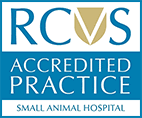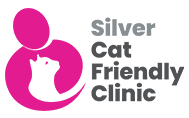Canine osteoarthritis
You may have noticed that your once bouncy canine companion isn't jumping for joy when you arrive home from work any more - we're sure they're still pleased to see you, but they may have developed a condition called osteoarthritis.
Which dogs are at risk of canine osteoarthritis?
OA is a chronic, degenerative disease that affects the joints and makes movement difficult and painful, it often begins to affect middle aged and senior dogs although some young dogs may be affected. Recent research shows around 20% of dogs have the condition in some varying degree.
It's difficult to watch the grey hairs appear and your once energetic companion get slower when they walk. Whilst there is no cure for OA, if treated early and correctly you can greatly reduce the pain and prolong normal mobility.
The signs of osteoarthritis
- Stiffness when walking and reluctance to climb stairs
- Reluctance to jump on or off sofa, car etc
- Less desire to play
- Increased sleep, laying in bed
- Difficulty standing up from lying down
- Hopping when running
- Beginning to limp
- Swollen joints that are often warm to the touch
- Paying particular attention to one joint i.e. licking
- Discomfort when being stroked or groomed
If you notice any of the signs above, it may be wise to get a Vet to check your dog over. The earlier they are diagnosed the better their senior years will be.
What causes OA?
1. Abnormal stress on healthy joints
- Excessive force on a normally healthy joint i.e. from a fall or jump
- General wear from repeated actions
- Excessive weight from obesity
2. Abnormal joints
- Under developed joints
- Deformity and mis-aligned joints can cause excessive pressure on certain points
- Genetics, some breeds are more predisposed to conditions like OA
How is OA treated?
1. Weight management: If it's difficult or painful to exercise dogs often become less active, leading to weight gain and often obesity. By monitoring a pet's weight and keeping them at a healthy weight, you can reduce the stress on arthritic joints.
2. Exercise: Whilst it may be difficult if they are painful, exercise is still very important as it strengthens the muscles that support the joints. Exercise should be low-intensity to prevent further damage, but with careful low-impact exercise it can help maintain joint mobility. Hydrotherapy (swimming) is a great way to exercise safely.
3. Medication: Anti-inflammatories can help to reduce inflammation in the joints, relieving pain and therefore allowing your pet to move more comfortably. Sometimes there can be side effects related to these anti-inflammatories such as gastrointestinal upsets.
4. Physical therapy: In addition to the above, your veterinary surgeon may suggest physical therapy. Brentknoll are lucky to work alongside Paula Fisher - Stokes who is a McTimoney Animal Manipulator. In occasional cases surgery may also be considered to be indicated to achieve the best outcome, in these instances manipulation offers huge benefits for both pre and post-operative care.
5. Bedding: Supportive bedding in a warm environment can help alleviate the pain and stiffness associated with OA.
How will my dog be affected?
OA may progress slowly (over a period of several years) or very quickly (you might notice a major change in just a few weeks or months). It can depend on your pet's age, activity level, which joints are involved and the underlying cause. Some pets' pain and immobility can be kept to a minimum for a long time with the treatment methods detailed above.
For others, severe damage to the joints may occur rapidly and require long-term medication and other therapy. In either case, discussion with the vet can determine the best course of treatment for your pet's particular condition.
There is no reason why, with your committed care and guidance from your vet, an osteoarthritic pet cannot have a happy, healthy and comfortable life for many years to come.








